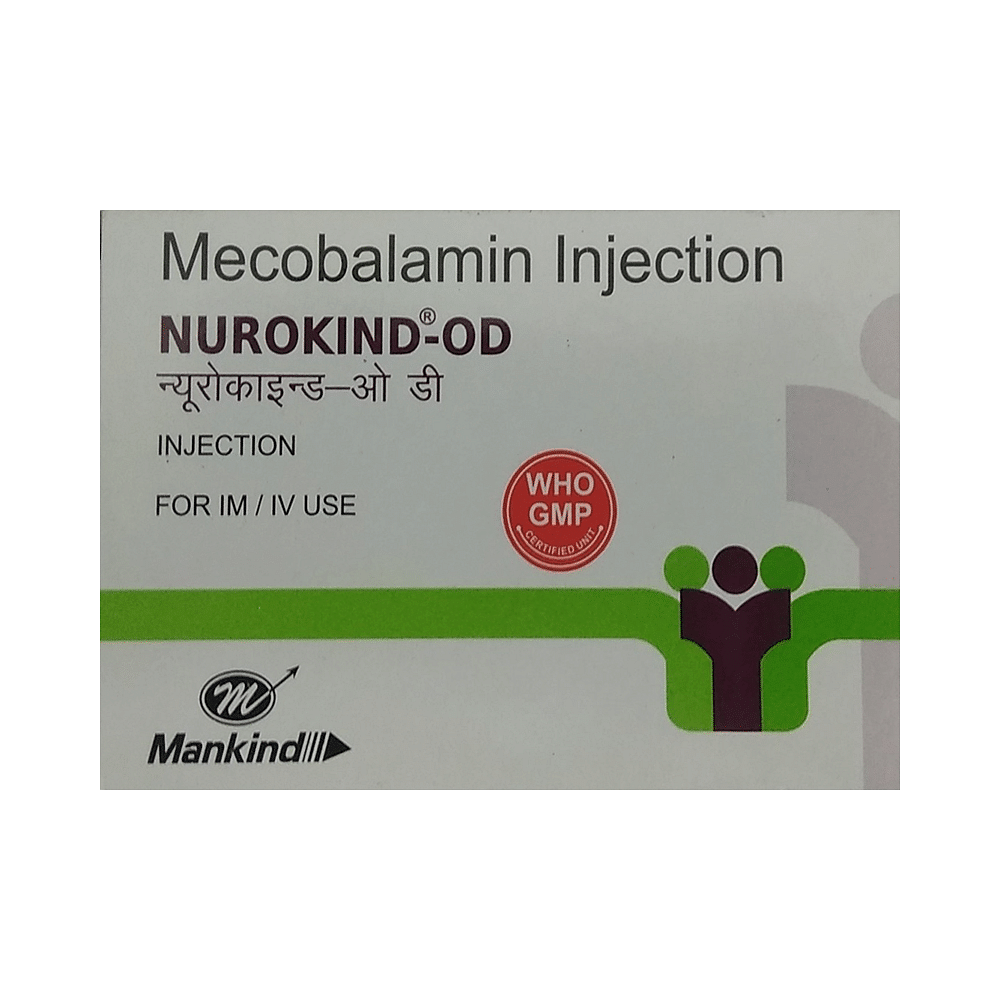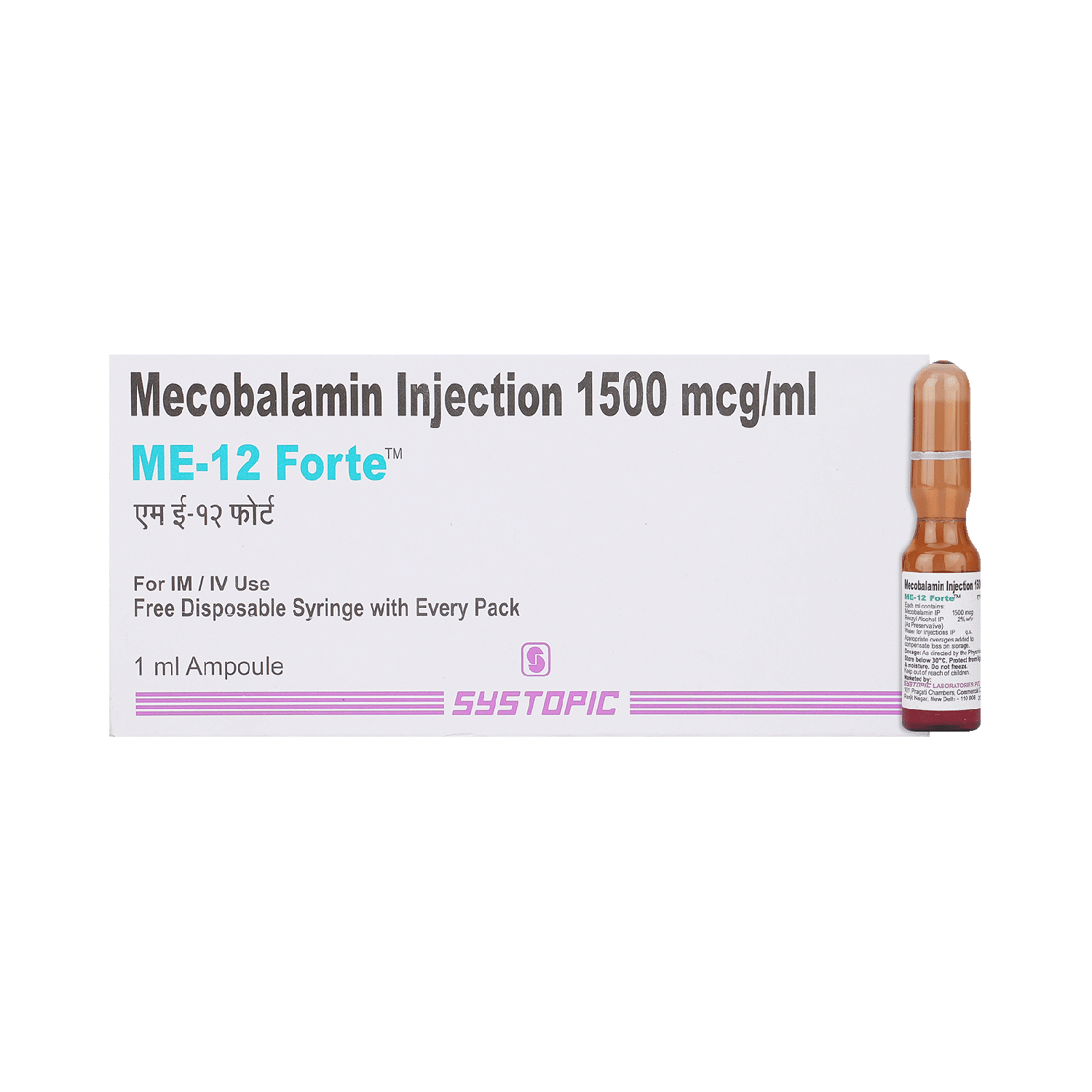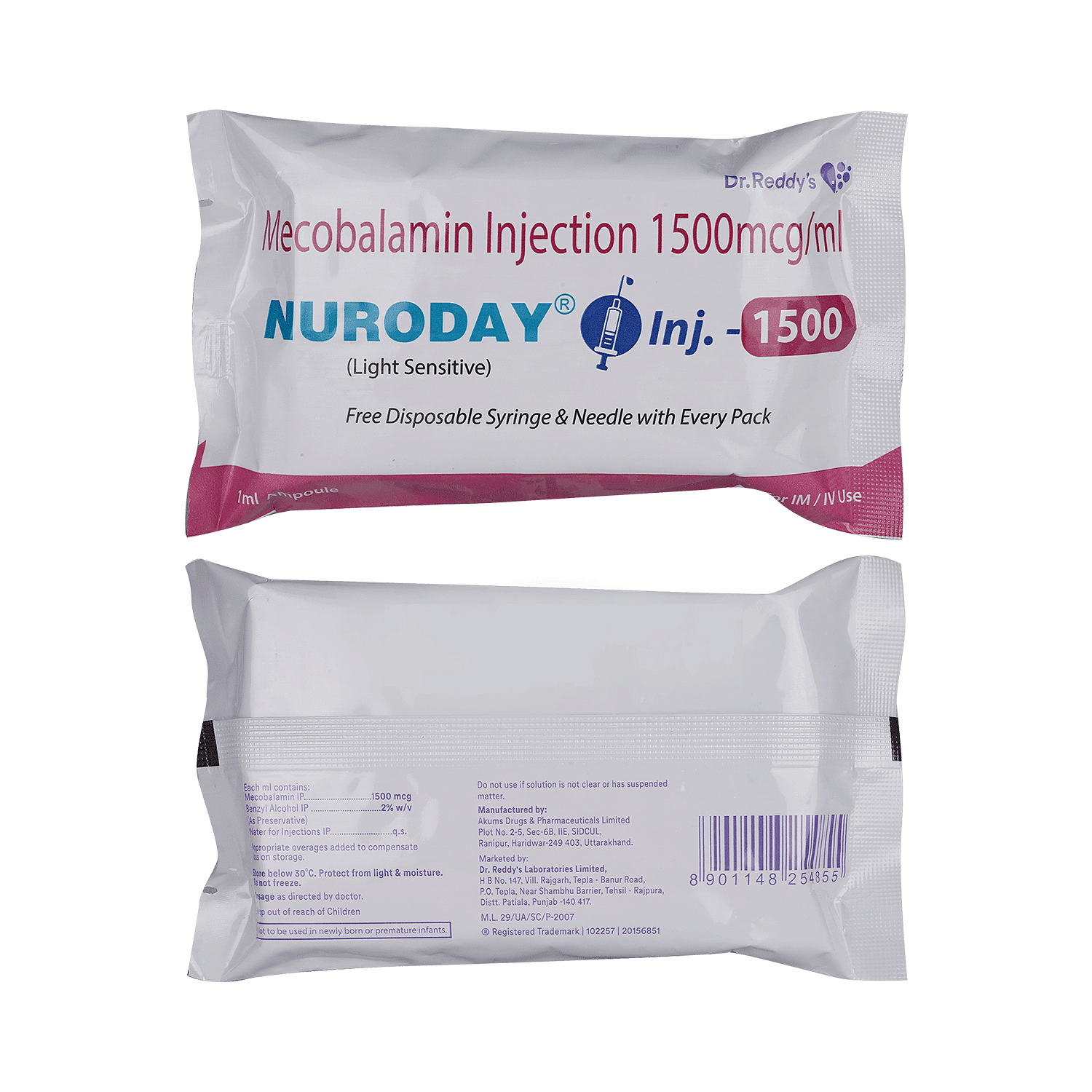
Neuro-Guard Injection
Manufacturer
Liza Life Sciences
Salt Composition
Methylcobalamin (1500mcg)
Key Information
Short Description
Neuro-Guard Injection is a man-made form of vitamin B12 used to treat deficiency of vitamin B12 in the body.
Dosage Form
Injection
Introduction
Neuro-Guard Injection is a form of vitamin B12 that restores its level in the body thereby helping in treating certain anemias and nerve problems. It is used to treat deficiency of vitamin B12 in the body. Vitamin B12 is important for growth, cell reproduction, blood formation, and protein and tissue synthesis. It also helps to treat anemia, fatigue, and numbness or tingling in the hands and feet.
Directions for Use
Your doctor or nurse will give you this medicine. Kindly do not self administer.
Safety Information
Side Effects
No common side effects listed.
Alcohol Warning
It is not known whether it is safe to consume alcohol with Neuro-Guard Injection. Please consult your doctor.
Breastfeeding Warning
Neuro-Guard Injection is probably unsafe to use during breastfeeding. Limited human data suggests that the drug may pass into the breastmilk and harm the baby.
Pregnancy Warning
Neuro-Guard Injection may be unsafe to use during pregnancy. Although there are limited studies in humans, animal studies have shown harmful effects on the developing baby. Your doctor will weigh the benefits and any potential risks before prescribing it to you. Please consult your doctor.
Interacting Medicines
Chloramphenicol Orlistat
How it works
Neuro-Guard Injection is a form of vitamin B12 that restores its level in the body thereby helping in treating certain anemias and nerve problems.
Related Medicines

Nurokind OD Injection

ME 12 Forte Injection

Nuroday 1500 Injection (1ml)

Mancob 1500mcg Injection

Mecomb 1500 Injection

Nurolice 1500 Injection

Nervibur OD 1500mcg Injection

Nasavit Plus 1500mcg Injection

Mecoros 1500mcg Injection

Smcob 1500mcg Injection
Frequently asked questions
What is Neuro-Guard Injection?
Neuro-Guard Injection contains vitamin B12. Vitamin B12 is an essential nutrient that helps the body make red blood cells and maintain a healthy nervous system. It also plays a role in releasing energy from food and using vitamin B11 (folic acid).
Why can't I get sufficient vitamin B12 through my diet?
You may not be getting enough vitamin B12 from your diet. It is mainly found in animal products like meat, fish, eggs, and dairy products. People who follow a vegetarian or vegan diet may have difficulty obtaining enough vitamin B12 as it's not naturally present in fruits, vegetables, and grains. Therefore, vitamin B12 deficiency may be more common in these individuals.
What happens if I experience vitamin B12 deficiency?
Vitamin B12 deficiency can lead to fatigue, weakness, constipation, loss of appetite, weight loss, and megaloblastic anemia (a condition where red blood cells become larger than normal). It may also cause nerve problems such as numbness or tingling in the hands and feet. Other potential symptoms include balance issues, depression, confusion, dementia, poor memory, and soreness of the mouth or tongue.
Is Neuro-Guard Injection safe?
Neuro-Guard Injection is generally well tolerated and considered safe when administered according to instructions. However, in rare cases, side effects such as nausea, diarrhea, anorexia, and rash may occur. Discontinue using the medication immediately if a rash develops.
How should Neuro-Guard Injection be given?
Neuro-Guard Injection can be administered intravenously (into a vein) or intramuscularly (into a muscle). The usual dose is one ampoule containing 0.5 mg of Neuro-Guard Injection, and it is given three times per week. After two months, one ampoule (0.5 mg of Neuro-Guard Injection) is given every one to three months as part of maintenance therapy.
What precautions need to be taken when administering Neuro-Guard Injection?
It's important to avoid injecting the medicine at the same site each time. If experiencing intense pain during injection or if blood flows back into the syringe, remove the needle and reinsert it at a different site.


